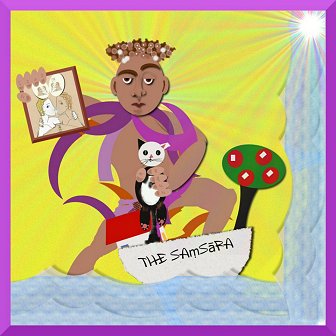A Secular Understanding of Dependent Origination: #9 Clinging
 |
|
The word translated as “clinging” is “upadana” and it actually makes reference to fuel — another form of nutriment, or food — so what we have here is the fuel of views, of rituals and observances, and of belief in the self, as well as the fuel of “sensual pleasures” (though I do not think that what’s meant there is limited to sensuality, but is, again, about everything sankhara-satisfying that comes in through the senses).
It might seem like this is simply saying, “Clinging to views: bad idea.” And regarding certain views (views conditioned by sankhara) this is true, just as it is for every other field we’ve discussed so far (good things also grow in these fields, but we’re looking out for the things that derive from sankhara). But it’s really asking us to watch what grows from the fuel provided by these views, views that support our sense that we have a lasting self, and sometimes even our sense that we know what that self is, and who is similar to us, and who is different. So the view that living in a house is better for our health than living on the streets in a cardboard box isn’t a problematic view — it’s not based in an excessive sense of self (it also *is* based on something that is observably true); not all views are a problem, only those driven by the whole chain before, the ones centered on an excessively needy self.
The process of forming opinions starts back with noting feeling as pleasant, unpleasant or neutral, gets further sorted in terms of what we should do with that which is pleasant (get more of it) and with the unpleasant (get less of it) and the neutral (ignore it), until we get here and begin to develop opinions strongly tied into our identity because they are driven by a need to have an identity.
Table of Contents for A Secular Understanding of Dependent Arising
